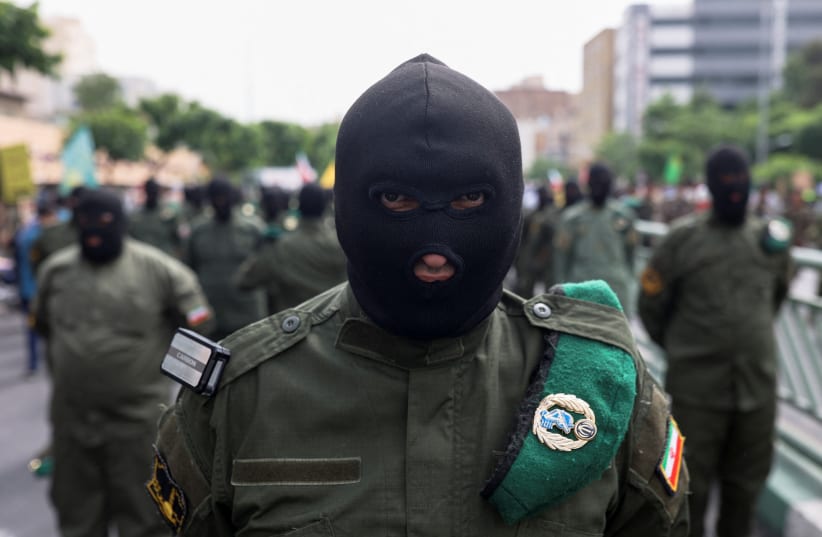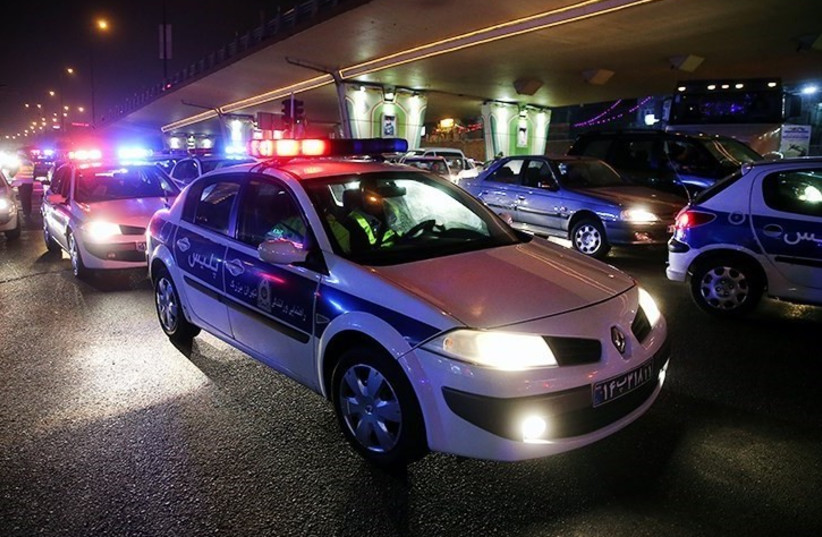The European Union on Monday imposed sanctions on five Iranian officials and two entities for carrying out “serious human rights violations in Iran” and “repression in cyberspace,” according to the European Council.
The new round of sanctions was part of its “eighth package” of punitive measures targeting the Islamic Republic, it said in a notice on its website.
Who did the European Union issue sanctions against?
The penalized persons and entities included “the current commander of the Tehran Police Relief Unit of Iran’s Law Enforcement Forces (LEF), and an individual linked to the Maryam Arvin case – a lawyer who was brutally arrested, gravely mistreated and subsequently died for her activities in defense of protesters,” the notice said.
The European Council said the sanctions “also target the spokesman of the Iranian Police, and the secretary of the Supreme Council of Cyberspace of Iran (SCC), the authority responsible for repression in cyberspace.”
The notice also listed “the IRGC Cooperative Foundation, which is the body responsible for managing the Islamic Revolutionary Guard Corps’ investments and funneling money into the regime’s brutal repression, and the Student Basij Organization (SBO). The latter acts as the IRGC’s violent enforcers on university campuses, where students staged protests in the fall of 2022 and were subsequently the victims of repression and serious human rights violations, such as abduction and torture.”
Designating IRGC as a terrorist organization
The US government classified the Islamic Revolutionary Guard Corps as a foreign terrorist organization in 2019. The European Parliament passed a nonbinding resolution calling for the IRGC to be designated as a terrorist organization. The IRGC controls more than 50% of Iran’s economy.
The EU has come under intense criticism from politicians for declining to outlaw the IRGC. The EU’s foreign policy head, Josep Borrell, announced in January that a ban of the IRGC requires a legal decision.
“It is something that cannot be decided without a court – a court decision first,” he said.
The legal requirement for Germany and the EU to proscribe the IRGC as a terrorist organization has been met, Norbert Röttgen, a Christian Democratic Union lawmaker in the German Parliament, told The Jerusalem Post in January.
Röttgen, who was chairman of the Bundestag Foreign Affairs Committee from 2014 to 2021, rejected the arguments of Borrell and German Foreign Minister Annalena Baerbock, who claim there is not a court case to justify the classification of the IRGC as a terrorist entity.
“All the legal requirements are fulfilled,” Röttgen said.
“Currently, the German attorney general is prosecuting terrorist attacks linked to the IRGC on several synagogues in the state of North Rhine-Westphalia, and in the US, there is a federal court decision against the IRGC for acts of terrorism,” he added.
The European Council said: “Restrictive measures now apply to a total of 216 individuals and 37 entities. They consist of an asset freeze, a travel ban to the EU and a prohibition to make funds or economic resources available to those listed. A ban on exports to Iran of equipment which might be used for internal repression and of equipment for monitoring telecommunications is also in place.”
The US-based organization United Against Nuclear Iran (UANI) on Monday said: “Following direct intervention by UANI, two European firms agreed to sever ties with Iran’s Aris Engineering Group, which specializes in oil and gas, petrochemicals and mining and lists among its ‘approved vendors’ several entities linked to the Islamic Revolutionary Guard Corps, a US-designated Foreign Terrorist Organization. These entities include Pars Oil and Gas Company, the National Iranian Oil Engineering and Construction Company, and the Iranian Offshore Oil Company.”
“Italian manufacturer ADOS has agreed to immediately end its relationship and cease contact entirely with Tehran-based Aris,” UANI added. “ADOS specializes in the production and distribution of load cells and electronic weighing systems for various industries, including automotive, construction, marine and industrial applications.”
According to UANI, Kytola Instruments, a Finnish industrial-flow, measurement-device producer, said it would cease work with Aris as a distributor after UANI’s intervention.
Kytola told UANI it would “immediately stop all sales and promotion to Iran and remove Aris from our listed partners at our site.”
UANI issued a warning to current “and would-be Iranian commercial partners about the myriad severe legal, financial and reputational risks of doing business in and with Iran.”
UANI has asked other firms that work with Aris to sever all ties, including Celsa, Intra-Automation, Goldammer Regelungstechnik, PFREUNDT and Tempsens Instruments.

